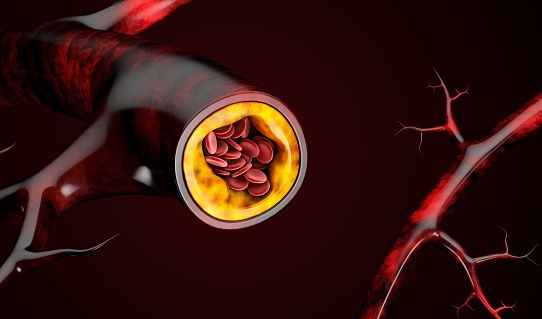
People with a history of cancer have an over two-fold risk of developing atrial fibrillation (AFib) compared to the general population, according to research presented at the American College of Cardiology’s Annual Scientific Session Together with World Congress of Cardiology (ACC.20/WCC).
Researchers analyzed the records of more than 143 million adult patients who visited a hospital in the United States between 2012 and 2015, of which, 10% had some form of AFib. Subsequently, they evaluated medical records to determine how often AFib and cancer coexisted and to determine whether people with certain cancers were more likely to develop AFib. After adjusting for known cardiovascular risk factors and other heart conditions that could lead to AFib, such as hypertension, diabetes, coronary artery disease, cardiomyopathy and valvular disorder, the odds of having AFib with any cancer was more than twice what would be expected. The results showed that prostate cancer ranked highest in association with AFib, followed by breast, lung, colon and non-Hodgkin’s lymphoma.
“When we looked at everyone with some form of AFib, those with certain types of cancer were more likely to have heart rhythm abnormalities, and this trend persisted even after accounting for other cardiovascular risk factors and disease,” said Muhammad Khan, MD, a resident at St. Mary Medical Center in Langhorne, Pennsylvania, and the study’s lead author in a press release.
“We found 2.3-fold increased odds of having AFib with all cancers studied. There was a greater than 50% increased risk of AFib in prostate, colon and lung cancer patients. Of these three, those with prostate cancer had the highest risk of AFib.” The findings suggest that other factors related to the specific type of cancer itself may be contributing to AFib in these patients, Dr. Khan said. “For example, these cancers may be associated with higher mortality due to circulating pro-coagulants and greater systemic inflammation, but this relationship has yet to be studied,” he said. “Based on our findings, certain patients should be considered at higher risk of AFib and may benefit from cardiac evaluation and appropriate treatments, whether it be with medication or ablative techniques, to help improve the survival rates in the long-term.”
Khan M. Prevalence of Atrial Fibrillation with Cancers and Associated Mortality: A Retrospective Study. Presented at the ACC.20 World Congress of Cardiology; March 28-30, Chicago, IL.







 © 2025 Mashup Media, LLC, a Formedics Property. All Rights Reserved.
© 2025 Mashup Media, LLC, a Formedics Property. All Rights Reserved.